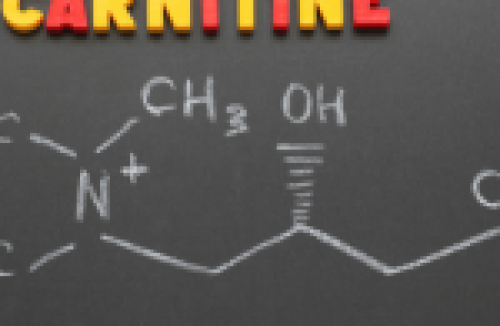What Does L-Carnitine Do for the Body?

L-Carnitine: A Vital Nutrient for Health and Performance
Many supplements promise miraculous results, yet few deliver on the promise. One compound stands out for its multifaceted benefits: L-carnitine. This naturally occurring substance plays a crucial role in energy metabolism, aiding in fat utilization, cardiovascular health, and much more. L-Carnitine’s ability to facilitate cellular energy production and aid in the removal of toxins can be further augmented when combined with certain synergistic supplements.
At its core, L-carnitine serves as a transportation system within the body, shuttling fatty acids into the mitochondria—the powerhouses of cells—where they are oxidized to produce energy. This mechanism is essential for individuals seeking to tap into fat stores for fuel during exercise or periods of caloric deficit. By facilitating the entry of fatty acids into the mitochondrial membrane, L-carnitine ensures a steady supply of energy, thereby promoting endurance and performance.
Genetic Factors
However, the effectiveness of L-carnitine can be hindered by genetic variants that interfere with its metabolism. Some individuals may possess mutations that compromise the body’s ability to utilize fat as a primary energy source. This can manifest as difficulties in weight management, exercise intolerance, or metabolic disorders. Fortunately, advanced diagnostic tools like organic acids tests can identify markers indicative of impaired fat metabolism, allowing targeted interventions such as L-carnitine supplementation to address underlying issues.
Lactic Acid Cleanup
Beyond its role in fat metabolism, L-carnitine offers a range of therapeutic benefits. One notable function is its ability to clear up lactic acid accumulation, a common byproduct of intense exercise or inadequate oxygen supply during ischemic conditions. By enhancing the removal of lactic acid, L-carnitine supports faster recovery and mitigates muscle fatigue.
Various Health Conditions Helped by L-Carnitine
Moreover, L-carnitine has garnered attention for its potential in managing various health conditions. Studies suggest its efficacy in peripheral vascular disease, angina, congestive heart failure, fatty liver, and diabetes. Its ability to enhance mitochondrial function and improve energy production makes it a valuable adjunct in these conditions, aiding in symptom management and overall well-being.
Detox of Metabolic Byproducts
L-carnitine, a naturally occurring compound, plays a pivotal role in detoxifying the body by aiding in the removal of potentially harmful metabolites associated with the β-oxidation of fatty acids. This process is crucial for maintaining metabolic flexibility and overall cellular health.
One of the primary mechanisms through which L-carnitine facilitates detoxification is by binding acyl residues generated during the intermediary metabolism of amino acids. By doing so, it assists in the elimination of these compounds, preventing their accumulation within cells. This function of L-carnitine is particularly vital in conditions such as organic acidemia, where abnormal organic acids can accumulate and cause harm if not properly removed.
Moreover, L-carnitine coupling plays a key role in modulating the balance of acyl-CoA compounds within cells. By decreasing the number of long-chain acyl residues attached to CoA and increasing the ratio of free CoA to acyl-CoA, L-carnitine helps prevent the buildup of fatty acyl-CoAs, especially in tissues like the heart and central nervous system. Excessive accumulation of these compounds can induce toxicity, trigger apoptosis (cell death), and promote inflammation, ultimately destabilizing mitochondrial membranes and compromising cellular function.
Furthermore, the conjugation of specific chain length acyls with L-carnitine produces unique species of compounds known as acylcarnitines. These acylcarnitines serve as markers for identifying inborn errors of metabolism and can be utilized in the screening of newborns for such conditions. By analyzing the profile of acylcarnitines, healthcare professionals can detect metabolic abnormalities early, allowing for timely intervention and management.
In essence, L-carnitine acts as a molecular chaperone, guiding potentially toxic metabolites out of cells and maintaining metabolic balance. Its multifaceted role in detoxification highlights its significance in preserving cellular health and preventing the onset of metabolic disorders.
L-Carnitine for Weight Loss
Furthermore, L-carnitine has gained popularity as a supplement for weight loss. By promoting the utilization of fat for energy, it may help individuals achieve their weight loss goals more efficiently. Coupled with a balanced diet and regular exercise, L-carnitine supplementation can support fat loss while preserving lean muscle mass.
While L-carnitine can be synthesized within the body, it is also found in various dietary sources. Animal products like meat, poultry, fish, and dairy are rich natural sources of L-carnitine. Plant-based options include avocados, tempeh, and certain nuts and seeds. Incorporating these foods into your diet can help ensure an adequate L-carnitine intake, supporting overall health and vitality.
Maximizing Detoxification:
Synergistic Supplements with L-Carnitine
L-Carnitine, a naturally occurring compound, plays a crucial role in energy metabolism by transporting fatty acids into the mitochondria, where they are converted into energy. This process not only fuels cellular functions but also assists in the removal of toxic byproducts generated during energy production. By enhancing mitochondrial function, L-Carnitine promotes cellular detoxification pathways, aiding in the elimination of harmful substances from the body.
To maximize the detoxifying effects of L-Carnitine, several synergistic supplements can be incorporated into one’s regimen:
Alpha-Lipoic Acid (ALA)
ALA is a powerful antioxidant that works in conjunction with L-Carnitine to neutralize free radicals and reduce oxidative stress. By scavenging harmful molecules, ALA helps protect cells from damage and supports the liver in its detoxification functions.
N-Acetyl Cysteine (NAC)
NAC is a precursor to glutathione, the body’s master antioxidant and detoxifier. By increasing glutathione levels, NAC enhances the liver’s ability to detoxify harmful substances, including heavy metals and environmental toxins.
Coenzyme Q10 (CoQ10) / Ubiquinol
CoQ10/Ubiquinol is another essential nutrient for mitochondrial function and energy production. By supporting ATP synthesis, CoQ10 complements L-Carnitine’s role in cellular energy metabolism and aids in the removal of toxins from cells.
Milk Thistle Extract
Milk thistle contains a flavonoid called silymarin, which has potent hepatoprotective properties. By supporting liver function and regeneration, milk thistle extract enhances the body’s ability to detoxify harmful substances and promotes overall liver health.
Vitamin C
As a water-soluble antioxidant, vitamin C helps neutralize toxins and promote the excretion of waste products through urine. Additionally, vitamin C supports the production of glutathione, further enhancing detoxification pathways in the body.
When combined with L-Carnitine, these synergistic supplements create a comprehensive approach to detoxification, supporting cellular energy production, antioxidant defense, and liver function. However, it’s essential to consult with a healthcare professional before starting any new supplement regimen, especially if you have underlying health conditions or are taking medications. By harnessing the power of these supplements in conjunction with L-Carnitine, individuals can optimize their body’s detoxification processes and promote long-term health and vitality.
L-carnitine is a versatile nutrient with profound implications for health and performance. Its role in fat metabolism, cardiovascular health, detoxification, and energy production makes it a valuable asset for individuals striving to optimize their well-being. Whether through dietary sources or supplementation, harnessing the power of L-carnitine can unlock a world of benefits, paving the way toward a healthier, more energetic life.
References
-
“L-Carnitine – Health Information Library.” PeaceHealth. https://www.peacehealth.org/medical-topics/id/hn-2821002. Accessed 10 June 2024.
-
“Benefits of Combining Supplements: L-Carnitine & Methyl B-12.” Center for Internal Medicine. https://www.centerforinternalmed.com/blog/benefits-of-combining-supplements-l-carnitine-methyl-b-12.
-
Salaffi F, Farah S, Sarzi-Puttini P, Di Carlo M. Palmitoylethanolamide and acetyl-L-carnitine act synergistically with duloxetine and pregabalin in fibromyalgia: results of a randomised controlled study. Clin Exp Rheumatol. 2023 Jun;41(6):1323-1331. doi: 10.55563/clinexprheumatol/pmdzcq. Epub 2023 Jun 28. PMID: 37378482. https://pubmed.ncbi.nlm.nih.gov/37378482/
-
“Acetyl-L-Carnitine – Uses, Side Effects, And More.” WebMD. https://www.webmd.com/vitamins/ai/ingredientmono-834/acetyl-l-carnitine.
-
“L-Carnitine: Benefits, Side Effects, Sources, and Dosage.” Healthline. https://www.healthline.com/nutrition/l-carnitine.
-
“Effect of L-Carnitine Supplementation on Clinical Symptoms in Women with Osteoarthritis.” ScienceDirect. https://www.sciencedirect.com/science/article/abs/pii/S1876382015000670.
-
“Role of Carnitine in Disease.” Nutrition & Metabolism, BioMed Central, 16 Apr. 2010, https://nutritionandmetabolism.biomedcentral.com/articles/10.1186/1743-7075-7-30.



